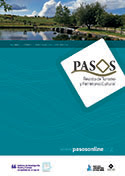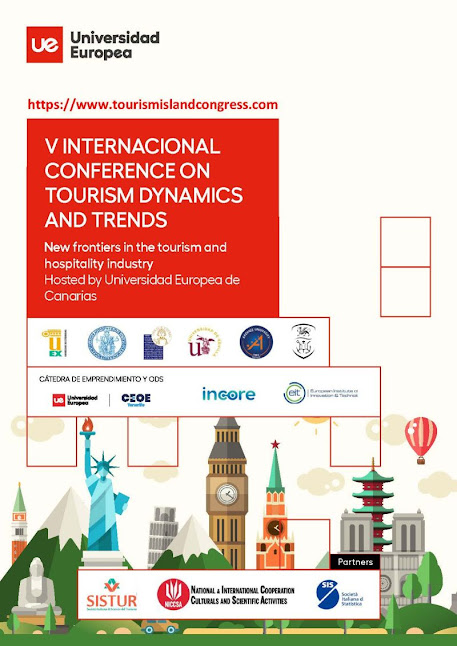[Caro colega
Estamos a organizar no Campus de Gualtar da UMinho (Braga), entre 19, 20 e 21 de julho, o 30th APDR Congress da Associação Portuguesa de Desenvolvimento Regional.
São 26 os temas previstos nas Regular Sessions e pode ainda enviar sugestão de Special Session até 15 de abril (com possibilidade de formato on-line).
Haverá possibilidade de publicação em três revistas:
1-Regional Science Policy and Practice (SCOPUS and Web of Science);
2-Portuguese Review of Regional Studies (SCOPUS);
3-Regional Studies (SCOPUS and Web of Science).
Está também prevista a possibilidade de apresentação pública de livros.
Pode consultar mais informação no fim deste e-mail e em: http://www.apdr.pt/congresso/2023
Cumprimentos.
Paula Remoaldo
(Presidente da Comissão Organizadora Local)
Dear colleagues,
The APDR invites regional scientists, economists, sociologists, geographers, urban planners, policy makers, and researchers of related disciplines to participate in the 30th APDR Congress with the theme "Sustainability Development Challenges of Territories in Contexts of Uncertainties due to External Shocks and Risks" that will be held from 19th to 21st of July, 2023, at University of Minho (Institute of Social Sciences and Lab2PT), Campus de Gualtar, Braga, Portugal.
During the last years, the COVID-19 pandemic and, more recently, the war in Ukraine, following the decision of Russia to invade it, impacted deeply world economy and citizens daily life, particularly in some territories more exposed to the tourism industry or relying more on non-renewable energies and other production factors which the war turned scarcer or more expensive. No one knows yet when this international conflict can have an end.
Besides, the international trade chain goes on suffering from the impacts of the pandemic, a phenomenon that is still without enough control in China. The need to enhancing the fight against global warming and climate change, as well as the continuous evolution of digital technologies, are also bringing some uncertainty to the markets, and it is hard to predict whose territories will be the winning and looser ones.
In this context, adopting more sustainable development strategies, social inclusive policies, more environmentally friendly transport modes, commit more on innovation and entrepreneurship at regional and local levels, and adopting new governance models at the territories, aiming deepen democracy and give efficacy to the decision-making process on the main issues affecting territories development, looks to be required.
The overall aim of this conference is to bring ideas, theoretical approaches and examples of potential solutions to territorial bottlenecks and social and development difficulties.
The call for papers and Special Session Proposals are open and your participation is very welcome!
Regular Sessions:
RS01 - Territorial Sustainability Strategies and External Shocks
RS02 - Governance in the Contexts of Economic, Environmental and Social Crises
RS03 - New Technologies to Support Governance and Sustainable Development
RS04 - Low Density Territories and Sustainable Development
RS05 - Sustainable Development Strategies in Urban Spaces
RS06 - Climate Change Mitigation and Adaptation Strategies
RS07 - Geographic Information Systems and other Geotechnologies in Sustainable Development Planning
RS08 - Big Data for Spatial Optimization and Regional Development in Adverse Contexts
RS09 - Theory and Methods in Spatial Analysis
RS10 - Quantitative, Qualitative and Mixed Methods in Regional Science
RS11 - Innovation, Entrepreneurship and Regional and Local Development in Adverse Contexts
RS12 - Economic, Social and Environmental Behaviours in Adverse Health Contexts
RS13 - Sustainable Tourism Strategies
RS14 - Tourism and Pilgrimage: Is there an Answer for the Development of a few Less Urbanized Territories?
RS15 - Inequalities, Asymmetries and Socio-Territorial Cohesion
RS16 - Risk and Disaster Management: Vulnerability and Resilience in Adverse Contexts
RS17 - Active and Inclusive Mobility
RS18 - Effects of Multiple External Risks/Shocks on Islands
RS19 - Demographic Challenges, Migrations and Integration
RS20 - Natural Environment and Territories Development
RS21 - Energy Transition and Regional Development Policies
RS22 - Infrastructure, Housing and Inclusive Growth
RS23 - Networks and Cooperation and Territories Development
RS24 - Regionalization and Decentralization: the Necessary Reform of State Aiming at Deepening Democracy and Enhancing Territories Development
RS25 – Entrepreneurial and Sustainable Ecosystems
RS26 – Circular Economy in Regions and Cities
Deadline for Special Session proposals: April 15, 2023.
Proposals should be sent by email to the secretariat of the Congress (apdr@apdr.pt).
Deadline for Abstracts submissions: May 15, 2023.
Authors should submit their abstracts through online submission system by following the link:
https://cmt3.research.microsoft.com/APDR2023.
All information at the congress website: http://www.apdr.pt/congresso/2023
Looking forward to meeting you in Braga, Portugal!
The Organizing Committee and the Board of APDR 30th APDR Congress]












